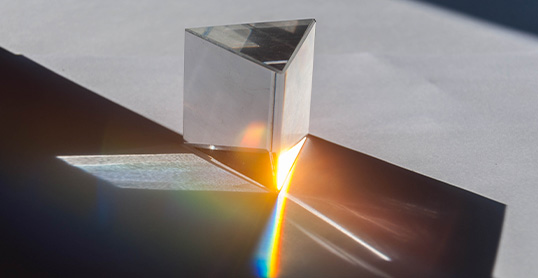Optical spectroscopy is a physical method of decomposing light according to its components and displaying the intensity distribution of the measured radiation according to energy or "color". In many cases, the interaction between light and matter is used to obtain information about a sample.
 In addition to applications in classical scientific or medical laboratories, spectroscopic methods offer great benefits in production environments and industry due to the miniaturization and further development of light sources, lasers, optical elements and sensors. Accurate identification of plastic species, for example, simplifies the processing and reuse of recyclables to use resources more sustainably. Measurements of absorption and transmission are important fundamentals for efficient laser material processing, whether ablative or deposition. Optical properties such as turbidity, coloration and gloss are also classic examples for the use of optical spectroscopy.
In addition to applications in classical scientific or medical laboratories, spectroscopic methods offer great benefits in production environments and industry due to the miniaturization and further development of light sources, lasers, optical elements and sensors. Accurate identification of plastic species, for example, simplifies the processing and reuse of recyclables to use resources more sustainably. Measurements of absorption and transmission are important fundamentals for efficient laser material processing, whether ablative or deposition. Optical properties such as turbidity, coloration and gloss are also classic examples for the use of optical spectroscopy.


